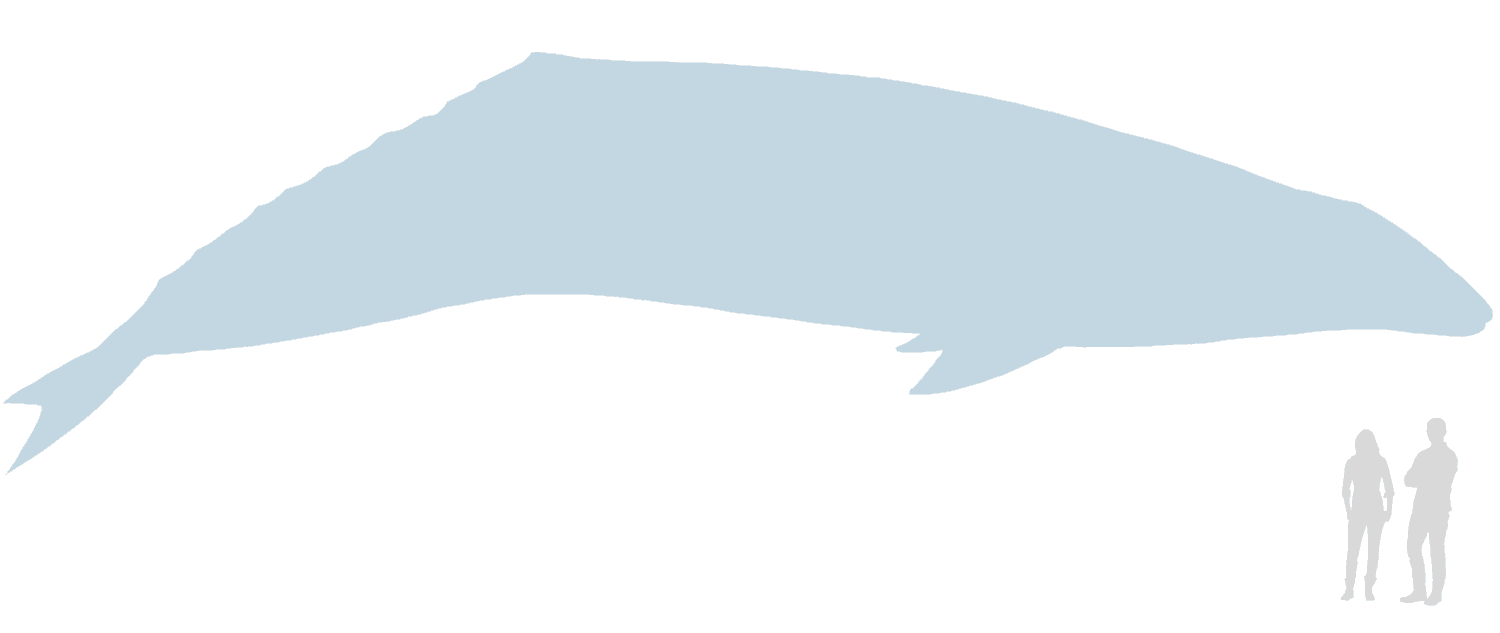
Gray Whale
Eschrichtius robustus
Scientific Classification
| Kingdom | Animalia |
|---|---|
| Phylum | Chordata |
| Class | Mammalia |
| Order | Cetartiodactyla |
| Suborder | Mysticeti |
| Family | Eschrichtiidae |
| Genus | Eschrichtius |
| Species | robustus |

Gray whales are about 42-49 ft long (12 to 15 m) and can weigh up to 35 tons (32,000 kg)!
They have a lifespan of about 75-80 years!
Gray whales are primarily bottom feeders, consuming a wide range of prey including crabs and shrimps. To forage, they roll over on one side, sucking up sediment and the small creatures that live in it.
They are found in the coastal waters of the North Pacific, and rarely venture more than 12-18 miles (20-30 km) offshore.
Threats to Gray Whales
Fishing & harvesting of aquatic resources, pollution, anthropogenic (human-created) noise, collisions with boats, etc.
Current Population Trend Stable
 |
Conservation Status The IUCN Red List tracks the conservation status of organisms around the world. Visit the Red List to learn more about the conservation status of gray whales. |
OCS Research Insights
During the migration season, we see mothers and calves foraging together in kelp beds.
We share data with other researchers to track gray whale migration and abundance off California.
We have observed gray whales entangled in fishing gear.
Gray Whale Facts
• Gray whales undertake one of the longest migrations known in the animal world – up to 12,000 miles each year! (20,000 km!)
• A gray whale can eat as much as 1.3 tons (1,200 kg) of food per day.
• With 53% fat and 6% protein content, their milk is one of the richest among whales.
• Pods of killer whales sometimes attack gray whale mother and calf pairs during their migration.
SUPPORT CONSERVATION
Protect whales and dolphins now and for future generations
TAKE ACTION!
Here's how you can help
Learn Safe Observation
Learn how to safely observe whales, dolphins and other marine mammals - whether from a boat, surfboard or when kayaking or swimming.
Report Injuries or Harassment
Know who to contact if you encounter marine animals who are injured, in distress, or those being harassed by humans or boats.
Support Marine Research
OCS conducts one of the longest-running investigations on wild dolphins and whales existing worldwide. Learn more about research projects that help ensure the protection of these animals for generations to come.
Share Your Knowledge!
Ocean conservation starts with education. Share this page by copy/pasting its URL into your social media accounts to educate others about the magnificent marine mammals we share our planet with.
whale and dolphin species drawings © Massimo Demma / ICRAM / Muzzio
